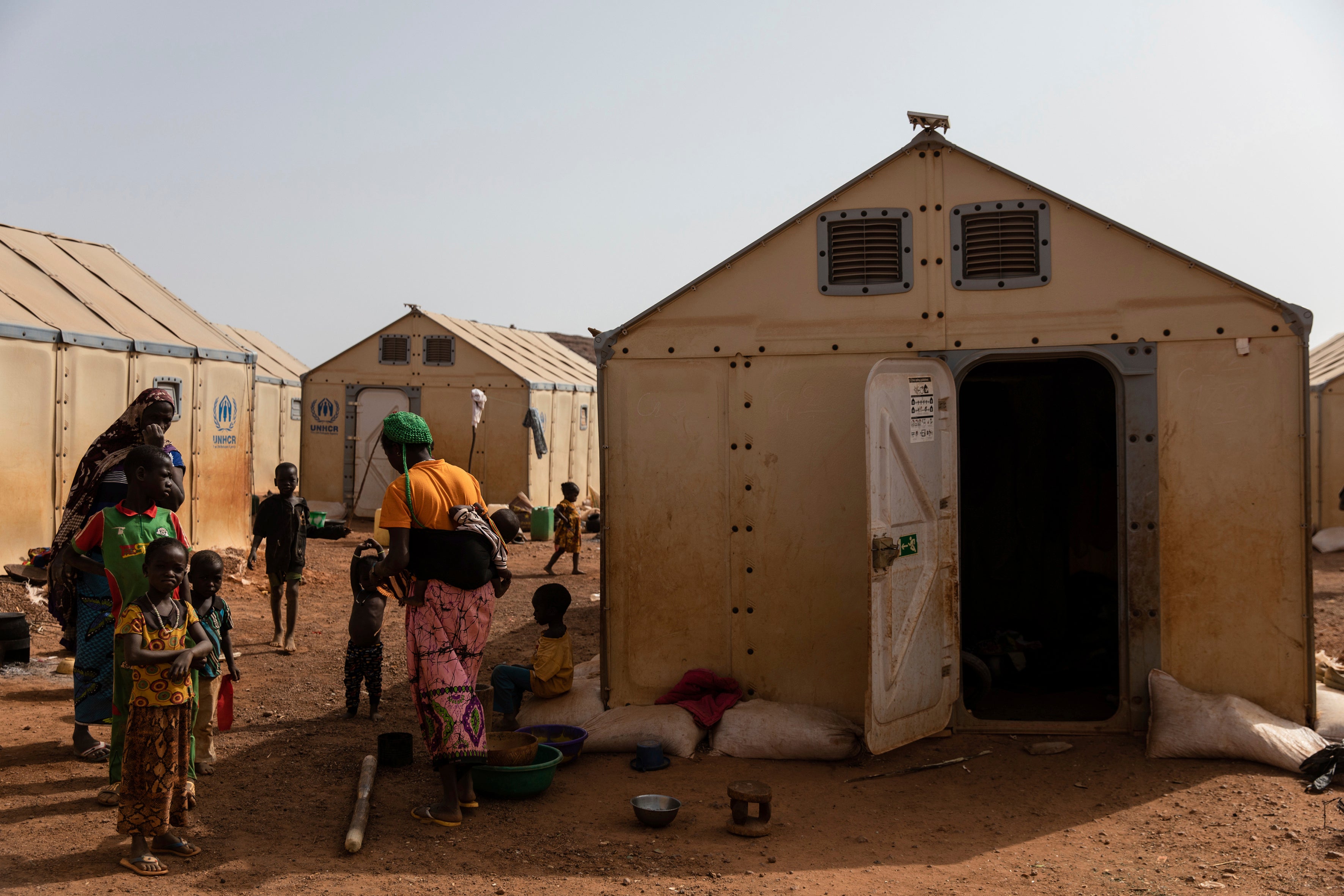UN: Burkina Faso on brink of protracted humanitarian crisis
A senior United Nations official says Burkina Faso is on the brink of becoming a protracted crisis after extremist violence displaced over 1 million people

Your support helps us to tell the story
From reproductive rights to climate change to Big Tech, The Independent is on the ground when the story is developing. Whether it's investigating the financials of Elon Musk's pro-Trump PAC or producing our latest documentary, 'The A Word', which shines a light on the American women fighting for reproductive rights, we know how important it is to parse out the facts from the messaging.
At such a critical moment in US history, we need reporters on the ground. Your donation allows us to keep sending journalists to speak to both sides of the story.
The Independent is trusted by Americans across the entire political spectrum. And unlike many other quality news outlets, we choose not to lock Americans out of our reporting and analysis with paywalls. We believe quality journalism should be available to everyone, paid for by those who can afford it.
Your support makes all the difference.Burkina Faso is on the brink of becoming a protracted crisis after extremist violence displaced over 1 million people, a senior United Nations official said this week during a visit to the West African nation.
U.N. acting assistant secretary-general for humanitarian affairs Ramesh Rajasingham spoke to The Associated Press after visiting the hard-hit Center North and Sahel regions in the country that has been engulfed in extremist violence for more than five years.
“You’ll see Yemen on the headlines, you’ll see Syria on the headlines, Libya, Mali perhaps, but Burkina Faso, we’ve had such a spike in displacement,” Rajasingham said. “If we don’t raise the profile, you’re going to see a loss of life, increased morbidity and a deteriorating situation that will then further compound the Sahel situation. It’s the tip of the iceberg."
Burkina Faso is the latest country under threat from extremist attack in the Sahel, a belt of semi-arid land south of the Sahara desert.
The country has become the world’s fastest growing displacement crisis in the last two years, with more than one in every 20 inhabitants forced to flee the violence, according to the U.N.
The violence killed more than 2,000 people last year. Some 3.5 million now need assistance and hundreds of thousands are hungry.
The longer the crisis drags on, the harder it will be for people to rebuild their lives, Rajasingham warned.
During a visit this week to a displacement site in Kaya in the Center North, where the majority of people have sought refuge, people said they had nowhere to live, nothing to eat and few ways to make money.
After watching her husband and 17-year-old son be dragged from their home shot dead by extremists last year, Mariam Pelhoute fled to Kaya with her nine other children. But she said she hasn’t received any food assistance and is forced to beg from friends and family. “We feel neglected,” she said.
Humanitarians say the government has been slow to acknowledge the crisis or admit that displaced people are in the capital, Ouagadougou. Civilians say they don't know where or how to register for food.
The Kaya mayor, Boukare Ouedraogo, last year said the government was doing what it could to help but was overwhelmed. People were begging for food outside his house almost daily, he said.
“There are often shortages. The state gives, but it doesn’t come regularly,” he said.
Monthly rations, much of them from aid groups, are “just enough to survive,” said Aminata Pitroipa, an U.N. worker in Kaya.
The U.N. has requested $600 million to support nearly 3 million of Burkina Faso's most vulnerable people this year. But the insecurity makes it difficult to reach people in need.
The problem is only going to get worse unless the government “comes up with a strategy to simultaneously treat the displacement and militancy problems,” said Laith Alkhouri, an intelligence specialist with the consultancy CTI-ME Intelligence Advisory.
Earlier this month Burkina Faso's government signaled for the first time that it might be open to dialogue instead of a purely military approach.